Horse News
Member
Say Goodbye is Never Easy
Savor the good days. Remember the good rides.
Our horses become cherished members of our families. Frankly, I spend more time with my horses than many members of my actual family. Sadly, there will always come a time when we’re faced with the difficult decision of saying goodbye to our beloved horses due to age, accident, or illness.
While it’s a topic that tugs at my heartstrings, horse owners need help navigating this loss with compassion and understanding. That’s why we wrote this article. But, always ((always)) consult your veterinarian before making any life or death decisions.
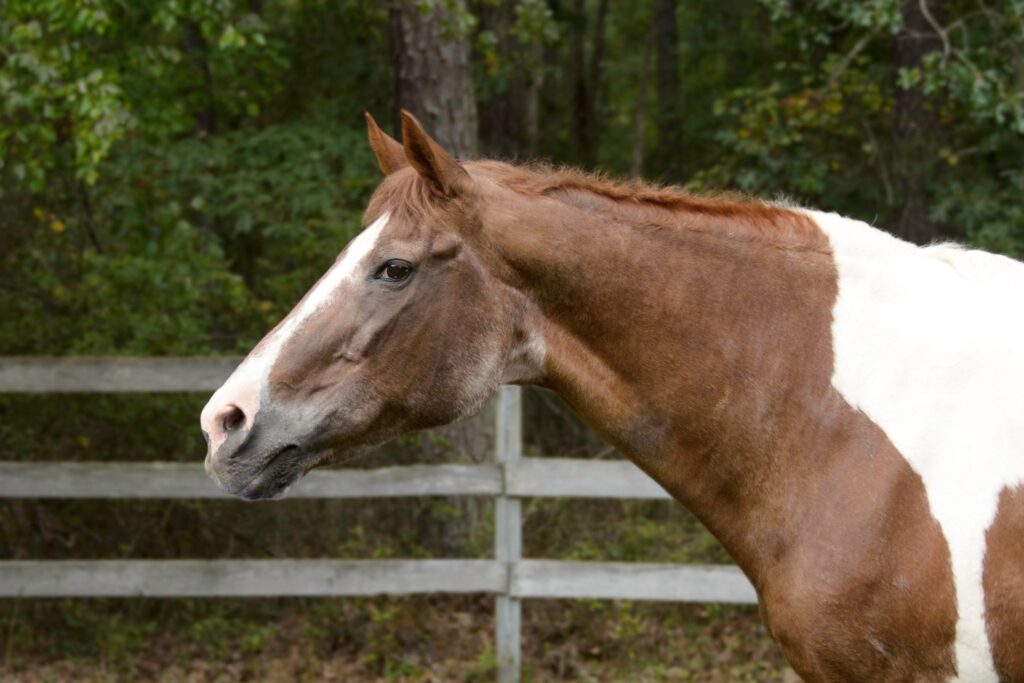
Source: Canva
The Equine Lifespan
First, we should set some expectations around lifespan. The average horse lives for 25-30 years. Typically, ponies live longer than horses and horses live longer than draft horses. Mustangs, or horses in the wild, tend to live shorter lives than those in captivity.
Unspoken Signs
Horses, like humans, physically age with time.
Senior horses can display some of the following physical characteristics:
- Graying around the muzzle and eyes
- A droopy lower lip
- Indentations above the eyes
- A sway back or bony topline
- Poor dentition, often apparent by quidding (dropping feed from their mouths while chewing)
- Loss of vision
Equine seniors also may begin to show signs of slowing down, stiffness due to arthritis, or a decrease in energy. Some horses become difficult to keep at a healthy weight, often referred to as “hard keepers.” The horse’s immune system will also weaken over time.
One bright spot in an otherwise dark topic is around your horse’s mental state.
Horses don’t experience senility, unlike humans.
Paying close attention to their behavior and physical well-being is crucial. If your horse is struggling to move comfortably, experiences chronic pain, or has difficulty performing tasks they once enjoyed, it might be a sign that their quality of life is declining.
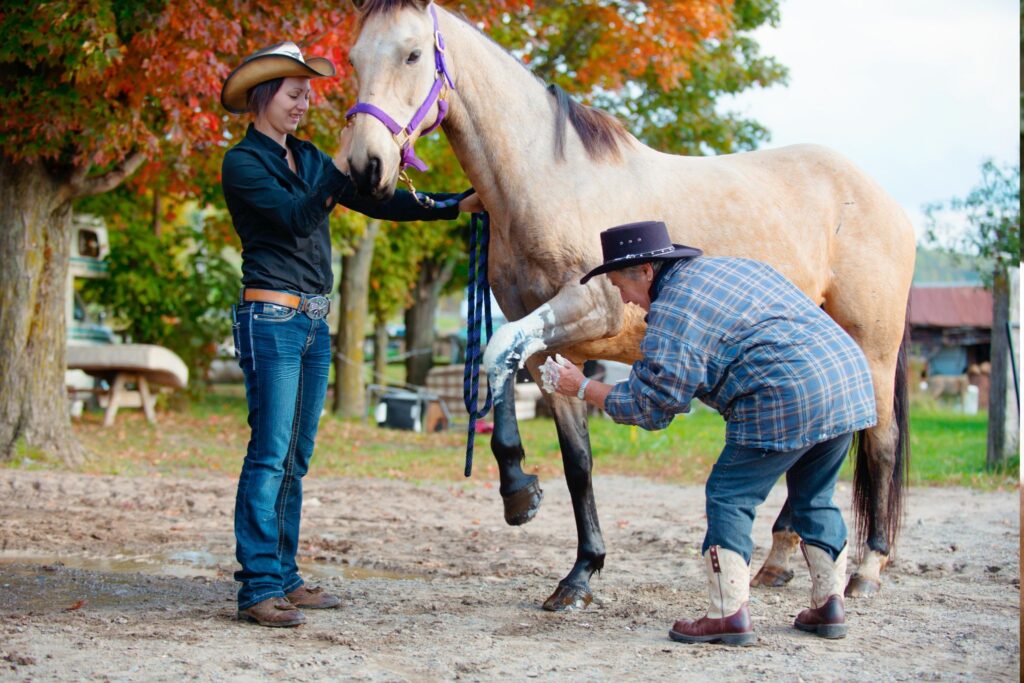
Source: Canva
Diseases in Senior Horses
A few diseases are more common among senior horses. Talk to your vet if you think your horse may have any of these conditions:
- Cushings Disease (Equine Pituitary Pars Intermedia Dysfunction, PPID)
- Osteoarthritis
- Equine Metabolic Syndrome
Common Causes of Death in Horses
The most common cause of death in horses is colic. Colic is a generic term for pain in a horse’s abdomen.
Cancer is the second leading cause of death in horses over 20 years old, followed by neurologic problems and then chronic weight loss, according to this 2015 study.
Quality Over Quantity
One of the most significant considerations in this process is your horse’s quality of life. While we might wish for our equine friends to live forever, it’s essential to put their well-being first.
A family friend of mine, who is a veterinarian, once told me:
Better a day too early than a day too late.
I have carried that phrase with me when looking at the quality of life for my animals.
PetMD recommends asking these questions when thinking about your horse’s quality of life:
- Is my horse in pain that can’t be managed with medications and routine changes?
- Is my horse able to stand up?
- Is my horse able to comfortably move around?
- Is my horse able to maintain a healthy body condition score, year-round?
- Is my horse lying down for longer periods of time than usual?
- Is my horse able to eat and drink normally?
- Is my horse in pain?
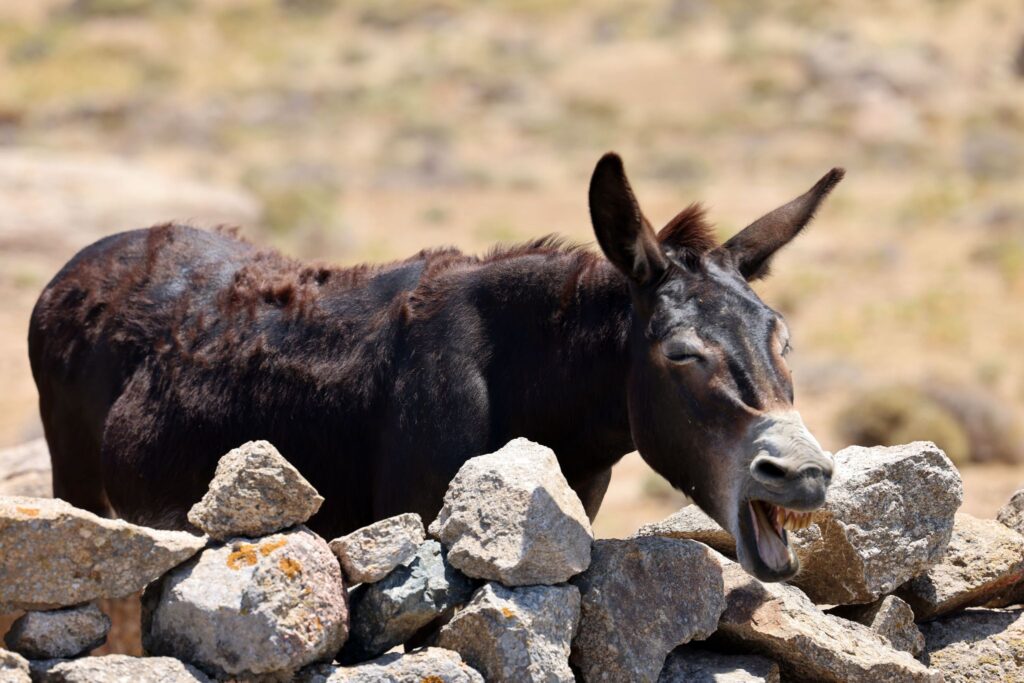
Source: Canva
The Veterinarian’s Insight
Asking these questions to yourself is a good first step, but you should always consult your veterinarian when discussing end of life.
Your veterinarian is your ally in this difficult journey.
They can provide a professional assessment of your horse’s health and offer guidance on whether medical intervention or euthanasia is the most humane option.
Open communication with your vet will help you understand the available treatments, potential outcomes, and when the time might be right to say goodbye.
Euthanasia Options
While there are several approved methods of equine euthanasia by the American Association of Equine Practitioners, two methods account for the majority of cases in the USA:
- Injection of intravenous barbiturates
- Gunshot to the brain (sedation is recommended first and experience required)
Honoring Their Legacy
Saying goodbye doesn’t mean letting go of the memories and the impact your horse made on your life. Consider creating a scrapbook, sharing stories with fellow equestrians, or even planting a tree in your horse’s memory.
Etsy has many artisans who create beautiful works of art utilizing horses’ tails as a way to remember our equine companions. These gestures and items can help you honor their legacy and keep their spirit alive.
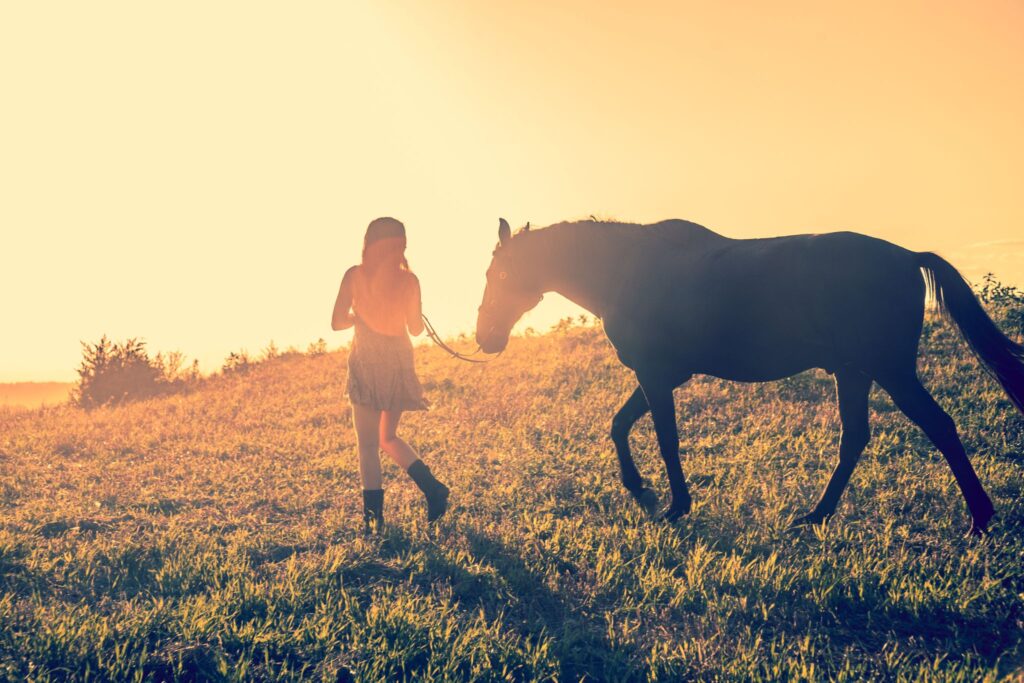
Source: Canva
Finding Closure
After saying goodbye, take the time to find closure in your own way. Whether it’s spending a quiet moment at their favorite grazing spot or creating a memorial, it is important to honor your grief and process it.
Grieving for your horse is a natural and necessary process. We spend so much time with these amazing animals and their absence truly does leave a hole in our hearts. While you should work through those feelings and allow yourself to feel sadness, take comfort in knowing you put your horses’ well-being first.
Seek out friends, family, or even professional counselors who can provide a supportive environment to share your feelings. Continue to tell stories about your horse and share their memories with others.
Strands of Hope by Susan Friedman (Strands of Hope: How to Grieve the Loss of a Horse: Advice and Stories to Help You Heal) is a great book about grief and saying goodbye to your horse.
Frequently Asked Questions
Q: How do you know when a horse is about to die?
Some of the most common signs that a horse may be near death is refusal to eat or drink, and refusal (or inability) to get up from lying down.
Q: What happens to a horse when it dies?
After death, the horse’s body will need to be removed. Many owners opt to leave for this part of the process, and that is perfectly reasonable, especially given how traumatic it can be to lose a beloved member of the family.
Options for equine remains include burial, rendering, and cremation.
Be aware that the method of euthanasia may influence options after death. Horses that are euthanized using barbiturates can’t be used in the food chain due to the toxicity of the chemical used.
Q: What happens when a horse gets too old?
As horses age, their teeth wear out. Eventually, it can be difficult to chew altogether, resulting in weight loss. Fortunately, there are lots of great senior feed options available to help you keep your aging horse healthy.
Q: How do you know when a horse is in pain?
There are a variety of symptoms that indicate pain in horses. Some signs include:
- Lameness
- Decreased appetite or no appetite
- Shifting weight from one leg to another
- Restlessness
- Abnormal sweating
- Muscle tremors
- Lying down more than typical
Q: What is the most common death of a horse?
The most common cause of death in horses of any age is colic. In horses over 20 years old, cancer is the second leading cause of death.
Q: What is the average age of a horse before it dies?
The average equine lifespan is 25-30 years.
Q: What breed of horse lives the longest?
Generally, size influences lifespan. The smaller the equine, the longer the lifespan. Ponies typically outlive horses, and horses have longer lifespans than draft horses.
Q: What noises do horses make when in pain?
Horses may groan when they are in pain. This article translates equine vocalizations.
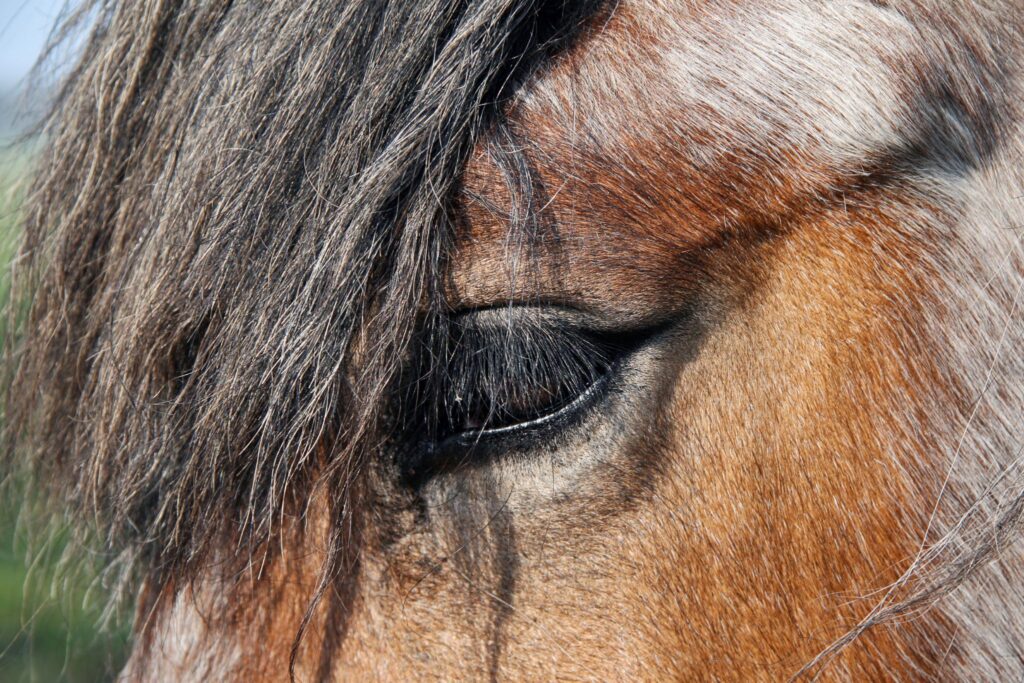
Source: Canva
Q: Do horses remember pain?
Yes, pain creates a memory. Horses learn to avoid situations that cause pain.
Q: What are 3 symptoms that a horse may exhibit when he she is having back pain?
Symptoms of back pain in horses includes:
- Restricted movement
- Refusing to work
- Head tossing
Parting Thoughts
Managing the end of life is a painful and difficult process. Our equine companions, however, deserve a dignified ending. While unpleasant, there are a lot of resources available to help you make the right decision for your specific situation.
P.S. Enjoy this article? Trot on over to:
- Tips & Tricks: How to Help a Senior Horse Gain Weight
- Equine End of Life: What Happens when Horses Die
- Solving the Senior Horse Feed Equation
- How to Weigh a Horse (Easy Step-by-Step Guide)
- Your Best Ride is Ahead: Horseback Riding for Senior Citizens
- How much does a horse weigh? (Fun facts, calculator, FAQs)
Sources:
Equine Mortality in the United States, 2015
The Aging Horse
Euthanasia Guidelines | AAEP
The post Watching, Waiting, Worrying (Signs a Horse May Be Dying) appeared first on Horse Rookie.
Continue reading...
